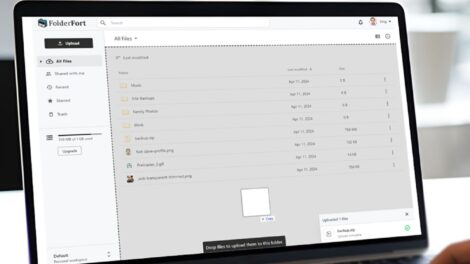Google has implemented a significant security enhancement to its Play Protect service for Android devices. Play Protect will now perform real-time scanning of any apps obtained outside of the Google Play Store before they can be installed on a user’s device. This new capability provides a vital layer of protection against the malware and data-stealing threats that can lurk in sideloaded apps.
In this comprehensive guide, we’ll cover everything you need to know about Google Play Protect’s real-time scanning for sideloaded apps, including:
- What is sideloading and its security risks
- How Play Protect’s new real-time scanning works
- The importance of this feature for Android security
- How users can enable and manage the feature
- Best practices for safe sideloading
- Common questions about Play Protect’s enhanced scanning capabilities
Let’s dive in and see how this major upgrade to Play Protect helps fortify Android app security.
What is Sideloading and Why is it Risky?
Sideloading refers to installing apps on your Android device from a source other than the Google Play Store. There are several ways users typically sideload apps:
- Downloading an APK file from a website or app store other than Play Store and opening it to trigger installation.
- Transferring an APK file from another device via email, messaging apps, file transfer apps, cloud storage, etc.
- Enabling app installation from “Unknown sources” in Android settings and installing APKs.
Sideloading opens up access to apps unavailable on Google Play Store. However, it also exposes the user to significant security risks. Apps obtained from sites and sources outside of Play Store have often not undergone rigorous security testing and vetting.
Malware-infested apps could easily be disguised as legit apps for popular services. Once sideloaded, these dangerous apps can steal personal data, commit ad fraud, hold your device ransom, spy on you, and cause other forms of harm.
How Play Protect’s Real-Time Scanning Safeguards Sideloading
To close this Android security gap, Google has unveiled a major upgrade to its Play Protect service.
Play Protect is Google’s security suite for Android, combining machine learning, app scanning, and human review teams to catch malware, spyware, Trojan apps, and other threats. It already performed some background scanning of sideloaded apps.
However, the previous scanning occurred after an app was already installed. This left a window of time where a malicious sideloaded app could still compromise a device before detection.
The new real-time scanning functionality prevents this. Now, whenever a user attempts to install an app from outside of Play Store, Play Protect will immediately scan the app before installation proceeds.
If Play Protect detects the app contains security threats, it will block installation and warn the user of the dangers. This gives users a chance to avoid installing harmful apps obtained from risky sideloading sources.
Why Real-Time Scanning Matters for Android Security
This enhancement to Play Protect’s capabilities is significant because of the sheer volume of sideloading that occurs:
- Billions of sideloaded app installs annually: Despite Google’s warnings, billions of APK installs from outside Play Store still happen every year.
- Rising sideloading among consumers: Sideloading has gained popularity with average users as a way to trial apps, get free or pirated apps, and more.
- Prevalence of malware and spyware: Security firms detect thousands of malicious sideloaded apps annually, as cybercriminals aggressively leverage sideloading to infect devices.
Without real-time scanning, a sizable percentage of Android users were likely being victimized by malware lurking in sideloaded apps. The scale of this threat to consumers and enterprises simply made this security feature imperative.
Enabling and Managing Play Protect’s Sideload Scanning
Play Protect’s enhanced scanning for sideloaded apps is enabled by default on devices running Google Play Services. But users can verify and configure the feature through these steps:
- Open device Settings, go to Security & privacy > Google Play Protect.
- Under “App security scans”, ensure “Scan apps with Play Protect” is toggled on.
- Tap “Play Protect settings” and enable “Scan apps from unknown sources”.
- You can also view past scan results and app security reports.
IT departments managing corporate devices can easily configure sideload scanning for their fleet via centralized policy management.
Users are advised against disabling sideload scanning, as this will eliminate a crucial security layer protecting devices. But if needed for specific apps, scanning can be toggled off temporarily in Play Protect settings.
Best Practices for Safe App Sideloading
While Play Protect makes sideloading safer, it’s still important to be cautious when installing apps outside of Play Store:
- Only download sideload apps from trustworthy sources, never random sites.
- Before installing an APK, check reviews and research the app’s legitimacy.
- Refer to Android Authority’s guide on how to safely sideload apps.
- Stick to well-known app stores like Amazon AppStore, F-Droid, APKMirror, etc.
- Avoid pirated apps or free app installers as these are high-risk.
- Install a trusted mobile security app for additional sideload protection.
- Grant sideloaded apps minimum permissions necessary only.
- Monitor device behavior closely after sideloading any apps.
Following this advice will help you sideload with greater peace of mind. But Play Protect’s real-time scanning now offers an extra robust layer of security against potential threats.
Key Takeaways
- Sideloading refers to installing apps from outside of Google Play Store and carries significant security risks.
- Google Play Protect will now provide real-time scanning of sideloaded apps before installation.
- This scanning blocks installation of dangerous apps and protects users from prevalent malware threats.
- The feature is enabled by default but can be managed in Play Protect settings.
- While helpful, users should still exercise caution when sideloading apps from unverified sources.
Conclusion
Google Play Protect’s new capability to perform real-time scanning of sideloaded apps closes a longstanding Android security gap. With Play Protect now evaluating the safety of sideloaded apps before installation, users have far greater protection from the malware attacks that have exploited sideloading. This represents a major achievement in Google’s ongoing efforts to lock down Android app security and present users with a safer app landscape overall. The improvements may never make sideloading 100% safe, but real-time scanning ensures it’s far more secure than ever before on Android.
Frequently Asked Questions
Does Play Protect scan sideloaded apps from all sources?
Yes, Play Protect will scan any app installation package (APK) a user attempts to sideload from any source, including direct downloads, file transfers, app stores, etc. Any sideloading avenue is covered.
What happens if Play Protect detects a threat?
Play Protect will immediately block installation of the app and warn the user that the app contains security threats. Users have the option to ignore the warning and install anyway. But this is strongly discouraged for most users.
Can Play Protect detect all malware and spyware apps?
Play Protect combines advanced machine learning with human review to catch even novel threats. However, extremely sophisticated threats may occasionally bypass detection, which is why caution with sideloading is still advised.
Does this feature scan existing sideloaded apps too?
No, Play Protect’s real-time scanning only checks apps that a user is newly attempting to sideload. It does not rescan apps already installed from sideloading. But its general malware scanning does continually monitor all apps.
Can sideload scanning be disabled?
Yes, users can toggle it off in Play Protect settings. But this is highly inadvisable except for rare exceptions. Disabling it eliminates a vital security layer protecting users from common malware attacks via sideloading.










Hey there! This is my first visit to your blog! We are a team of
volunteers and starting a new project in a community
in the same niche. Your blog provided us beneficial information to work on. You
have done a marvellous job!